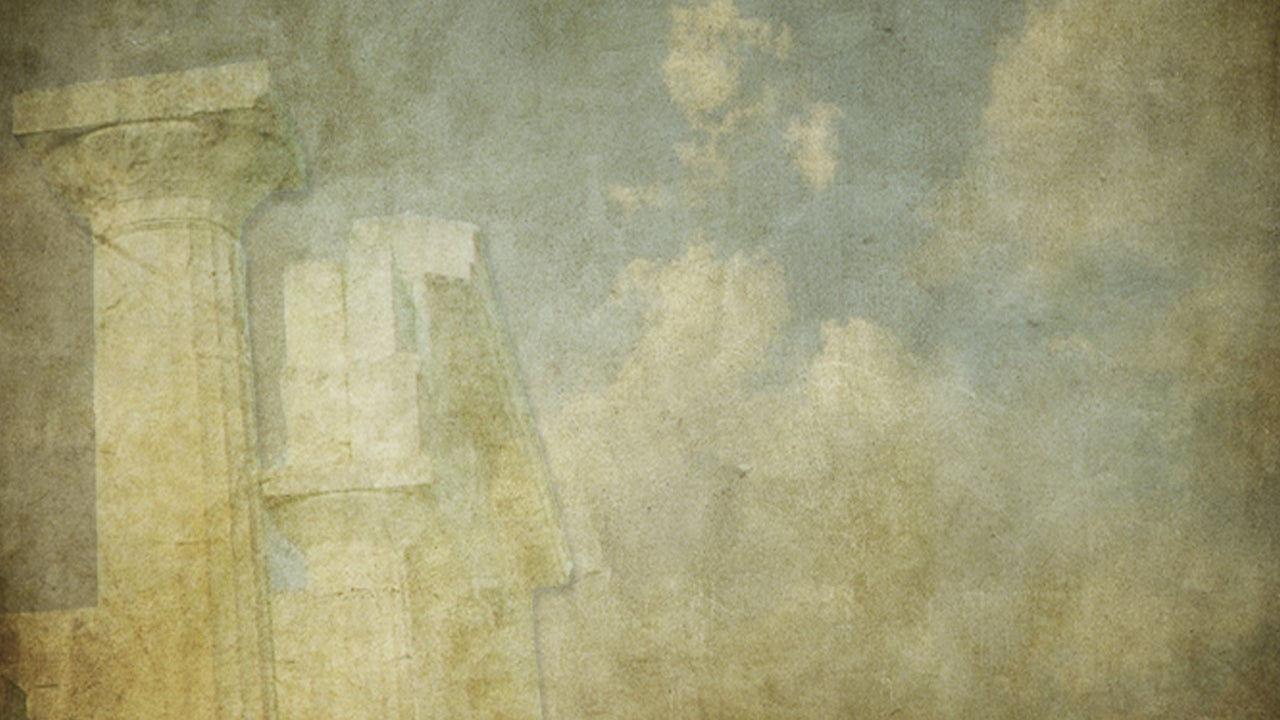
History
Western Heritage: From the Book of Genesis to John Locke
11 lessons
11h total length
Create Your Account to Get Instant Access to “Western Heritage: From the Book of Genesis to John Locke”
Examine the foundations of Western Civilization.
Lessons in this course

28:52
lesson 1
Jerusalem, Athens, and the Study of History at Hillsdale College
The Western heritage has two essential elements, represented by Athens and Jerusalem. Philosophy has its roots in ancient Greece and seeks to answer such questions as, “What is the good?” and “What is the best way for man to live?” The idea of monotheism first arose with the ancient Hebrews. These two elements together gave rise to Western Civilization and later to the American Founding.

35:00
lesson 2
The Hebrews
The Western heritage begins with the Hebrew tradition. This tradition has had a great impact on the Western understanding of man, God, and the relationship between them. The Hebraic ideas of creation, covenant, and kingship are essential elements of this understanding.

38:24
lesson 3
The Golden Age of Greece
Around the year 1200 B.C., Mycenaean civilization collapsed, which led to the creation of a new political order in Greece. The subsequent rise of the Greek city-state produced a civilization that culminated in the Golden Age of Greece. During this time, the Greeks produced great achievements in many fields, including politics, language, science, art, mathematics, war, architecture, and economics.

34:11
lesson 4
The Political and Philosophical Legacy of Greece
For the ancient Greeks—who invented self-government—the centerpiece of life was political participation. Participation in a council or an assembly made use of reason and speech to deliberate about a course of action. Greek philosophy later emerged from Greek political practice, and eventually became embedded in Christian theology.

40:55
lesson 5
The Rise and Fall of the Roman Republic
In the year 509 B.C., Roman patricians overthrew the Etruscan kings and founded the Roman Republic. The new government established magistrates with limited powers and terms of office, while taking into account the claims of the Senate and the people. The Republic eventually came to an end with the rise of Julius Caesar and the establishment of the Roman Empire under Augustus Caesar.

38:58
lesson 6
Early Christianity
In the early decades of the first century A.D., Jesus of Nazareth preached that He was the Christ, the long-promised Messiah. Following Christ’s crucifixion, the number of Christians began to expand dramatically. Later in the early fourth century, the Roman Emperor Constantine announced his own conversion and ended the persecution of Christians. The acceptance of Christianity raised questions about the proper relationship between religion and politics.

55:15
lesson 7
The Middle Ages
The Middle Ages, contrary to popular belief, was not merely an age of disease and warfare. It was also a time of preservation, renewal, and discovery. The men and women who lived in this period laid many important foundations of the modern Western world.

38:49
lesson 8
The Renaissance
The Renaissance began in the late 14th century and ended in the 17th century. This era is characterized by a widespread and long-lasting renewal of classical thought and practices, including in the areas of art, literature, and politics. In contrast to the scholasticism of the Middle Ages, the Renaissance gave rise to humanism or studia humanitatis.

35:48
lesson 9
Reformation and Counter-Reformation
Martin Luther—who published his 95 theses in 1517—did not see himself as a reformer. Rather, he believed that he was proclaiming the true word of God. The Catholic Church convened the Council of Trent in part to respond to Luther’s challenge.

31:36
lesson 10
The Scientific Revolution
Modern science occupies a central position from which it influences almost all of modern life. Even as modern science has delivered on its promise that knowledge is power, that power has proven very dangerous and difficult to wield wisely. Though modern science in many ways marked a discontinuity with the ancient and medieval worlds, undeniable continuities existed as well.

32:25
lesson 11
From Elizabeth I to the Glorious Revolution
From the reign of Elizabeth I to the Glorious Revolution, the West experienced both relative stability and great turmoil. Tension between religion and politics occasionally waned in some countries, and the idea of the rule of law was strengthened. The repeated failures of governments, particularly in England, gave rise to serious thinking about the nature of politics and the ideas that were influential in the American Founding.
Enroll in "Western Heritage: From the Book of Genesis to John Locke" by clicking the button below.
What Current Students Are Saying
Takes the student through the full context of the course subject matter. Wonderful insight into how we strayed and its consequences and offers a solution.
Create your FREE account today!
All you need to access our courses and start learning today is your email address.